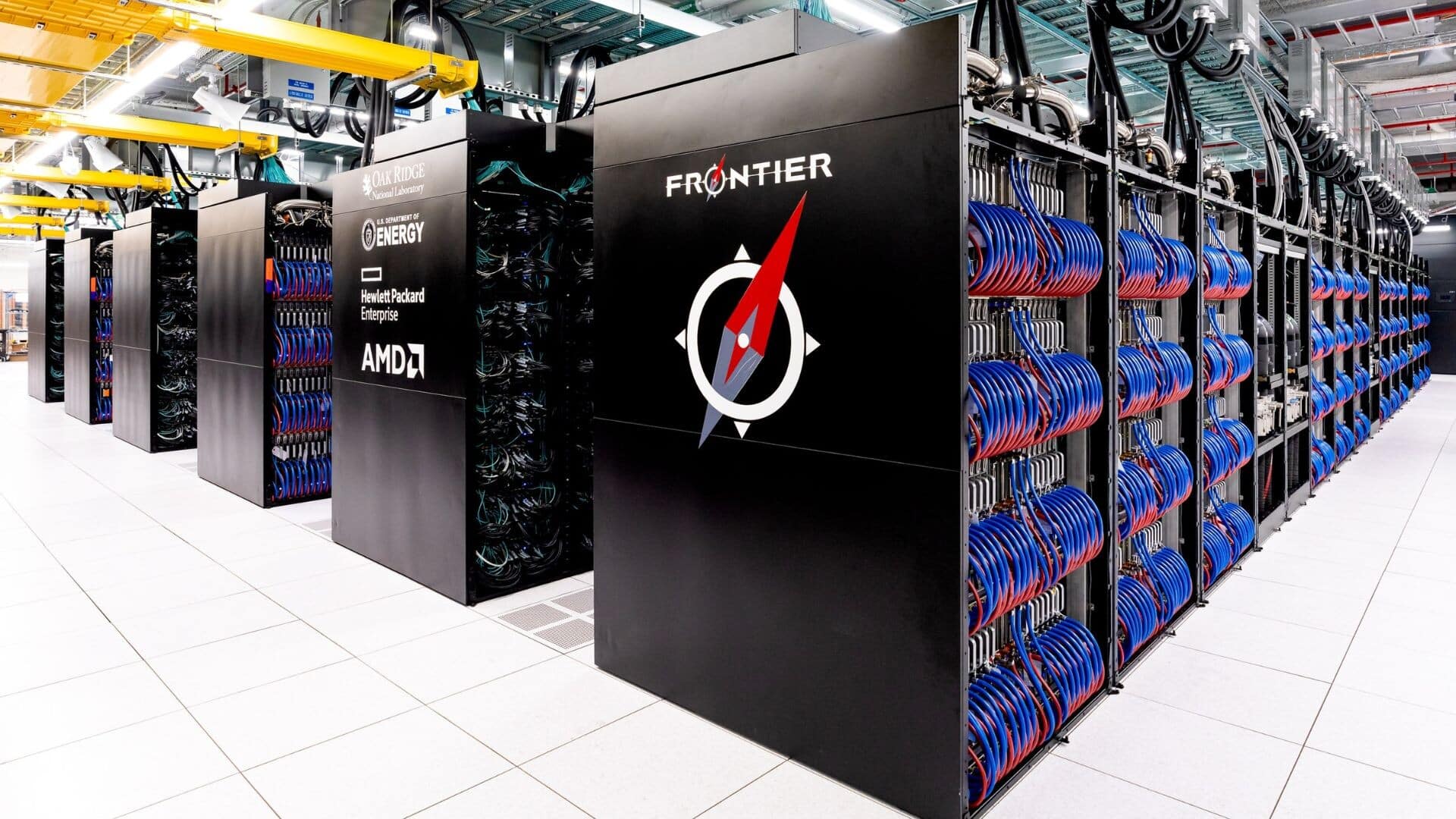
This supercomputer will be 5x faster than world's strongest model
What's the story
The US Department of Energy (DOE) is set to replace the world's fastest supercomputer, Frontier, with a more powerful machine. It will be called Discovery.
The DOE has issued a request for proposals (RFP) for Discovery, which is tipped to deliver three to five times more computational throughput than Frontier.
This could potentially push its performance beyond 8.5 exaflops.
Frontier's legacy
Frontier's reign as fastest supercomputer to end soon
Frontier, currently located at Oak Ridge National Laboratory (ORNL) in Tennessee, topped the Top 500 list of the world's fastest supercomputers, for the fifth consecutive time in May this year.
Built using AMD's Epyc processors on HPE Cray EX architecture, it boasts almost 8.7 million combined CPU and GPU cores, and a high-performance Linpack benchmark score of 1.206 exaflops.
Matt Sieger, ORNL's project director for Discovery, expressed his excitement about building something more capable than Frontier.
Usage
Where will the new supercomputer be used?
Discovery is expected to revolutionize scientific research across multiple fields including climate change prediction, high-energy physics, drug discovery, and green energy solutions.
Georgia Tourassi, ORNL's associate laboratory director of computing and computational sciences, emphasized Discovery's potential saying it will "help us study challenging problems we can't easily explore with experiment, observation, or theory alone."
Beyond traditional scientific applications, Discovery will excel in advanced artificial intelligence and machine learning tasks.
IRI initiative
DOE's integrated research infrastructure to benefit from Discovery
Discovery will play an important role in the DOE's Integrated Research Infrastructure (IRI) initiative, which aims to combine multiple research tools and scientific facilities.
The DOE has given interested vendors until August 30, 2024, to submit their proposals for Discovery.
The target delivery date to the Oak Ridge Leadership Computing Facility (OLCF) is set for 2027 or early 2028.
DOE has not specified a speedup goal over Frontier, but outlined objectives like improved energy efficiency and full-system modeling and simulation.
Global impact
Discovery to boost global scientific research
Once operational, Discovery will be accessible to researchers across the world, who can compete for computing time to handle scientific challenges.
Dr. Ceren Susut, associate director for science in the DOE's Advanced Scientific Computing Research program, highlighted the impact of such initiatives.
She said, "These discoveries will help shape our understanding of the universe, advance our capabilities for the predictability of the Earth system, bolster US economic competitiveness and contribute to a better future."